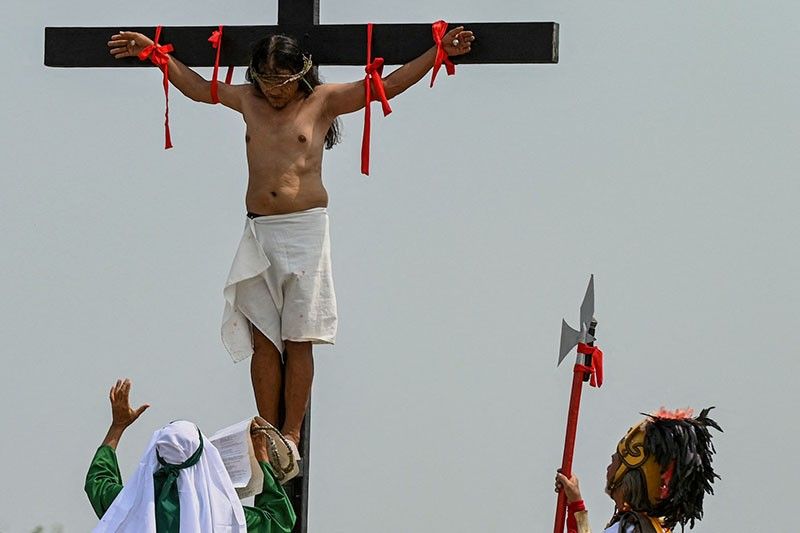Holy Week goes beyond religious traditions, 'feel good' practices — Archbishop Villegas

MANILA, Philippines — Lingyaen-Dagupan Archbishop Socrates Villegas said that Holy Week is a time to reflect on what Christ has done for humanity and urged the faithful to immerse themselves in the “memory of God's mercy” without feeling compelled to perform specific actions.
This was said by Villegas in a post on X (formerly Twitter) weeks before the commemoration of the Holy Week.
“Holy Week is not what men and women do to make these days holy. It is not about what Catholics must do, nor is it about religious traditions and pious practices done to ‘feel good’ after,” the prelate said.
He noted that while practices like fasting, prayer and almsgiving are commendable, they are meaningless without genuine concern for others and a selfless attitude.
“Make someone happy this Holy Week. Make someone feel loved. With your smile, show that God is love,” Villegas said.
Holy Week marks the commemoration of Jesus Christ's passion and death, starting on Holy Monday and ending on Easter Sunday.
It is a part of Lent, which is a 40-day religious observance for Catholics that starts on Ash Wednesday and ends on the sundown of Holy Thursday.
Fr. Vladimir Echalas, who heads research for the Catholic Bishops' Conference of the Philippines (CBCP), previously explained that Lent is centered around acts of penance and penitence.
“There is the ‘tripod of Lent’ namely: fasting, prayer and abstinence,” Echalas said in an online message with Philstar.com in February.
This year, the Holy Week will start on March 24 and will end on March 30.
During the Holy Week, traditions and practices vary with Filipinos. While some strictly abstain from eating meat throughout the 40-day Lenten season, others in the provinces engage in practices like "pabasa" or "kalbaryo," which narrates the passion and death of Jesus Christ through songs.
In Pampanga, some devout individuals observe "penitensya" on Good Friday, engaging in self-flagellation as they believe this act will lead to the absolution of their sins.
The "penitensya" practice even extends to individuals undergoing crucifixion using alcohol-soaked, two-inch nails.
These practices were discouraged by the CBCP, stating that Jesus Christ had already died for mankind's sins, rendering repetition unnecessary.
Villegas also reminded the faithful that, amid the various practices, love endures and has the power to "make us holy."
“For 2,000 years now, only one tradition has remained—the Christian tradition of Love. It is really not just a tradition. The first Christians were known to be the most loving of all. Love is our identity. This week is holy because of love,” he said.
- Latest
- Trending
































